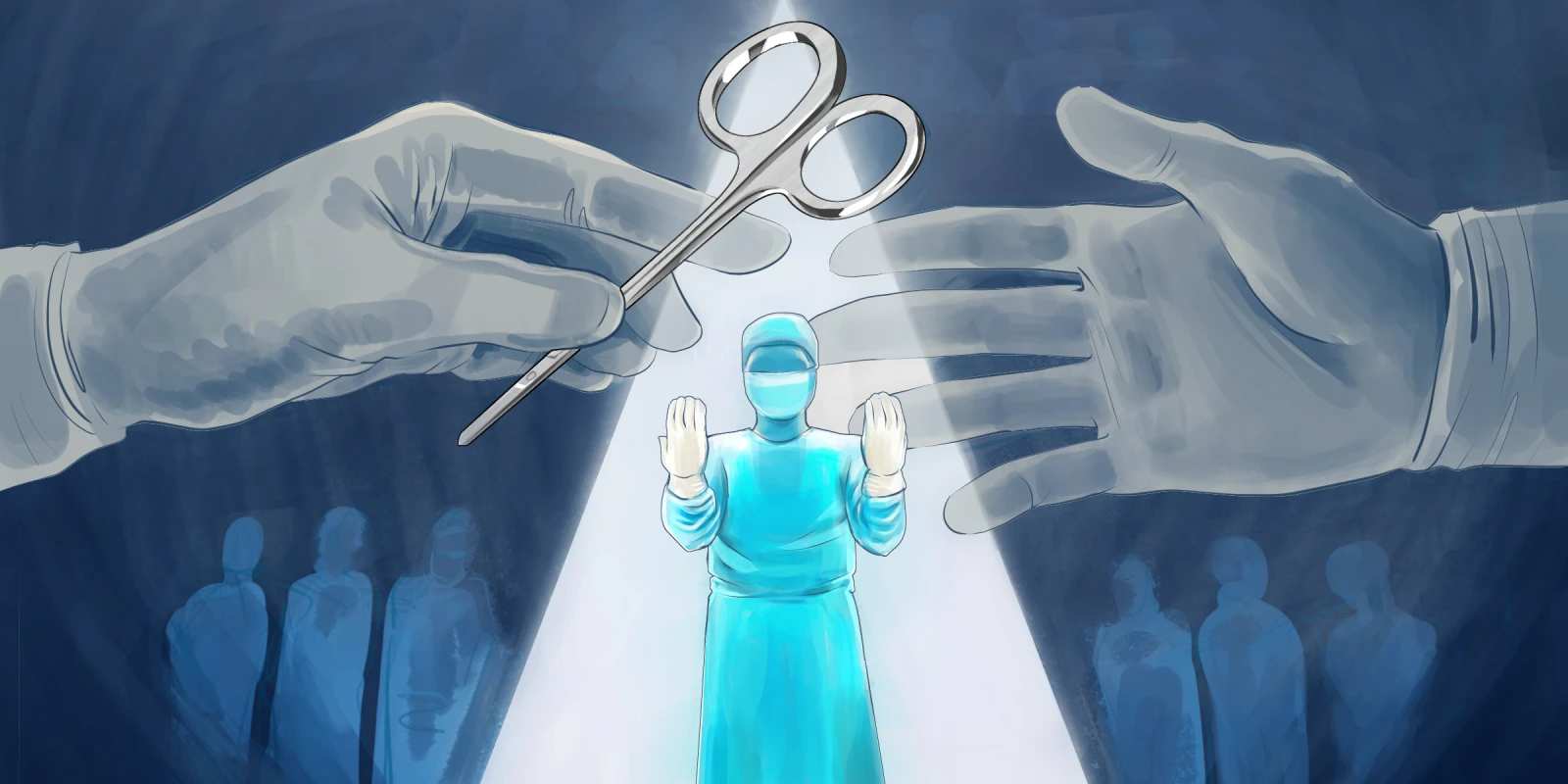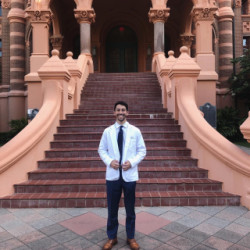Deep to superficial, superficial to deep. I repeated the mantra, envisioning the basic steps for a simple buried suture. I should have been able to do this, but I could not seem to get out of my own head. The trocar site was no more than half a centimeter, yet it felt like I was trying to close a gaping wound. My hands were shaking from a combination of nerves, frustration, and exhaustion. I was taking too long, I had screwed up several times already, and I was painfully aware of the residents and scrub techs waiting on me. I spent hours practicing different methods of knot tying and suturing in the weeks leading up to this rotation in hopes of being prepared, just to end up failing under the slightest pressure.
I knew from the start that I probably wouldn’t be great at suturing since fine motor skills have never been my strong suit, but this was worse than I imagined — it felt like my hands were disconnected from my head. As a student who prides myself on being prepared, I was ashamed of how unrehearsed my efforts must have appeared. To make matters worse, I was the only student on duty that day, so I would have to regain my composure and be ready for attempt number two in just a few hours. Leading up to that second case, all I could think about was how foreign everything had felt in the OR. From the moment I started the scrub timer to the point when I tore off my gown, I was hyperfocused on every small action, trying my best to follow the instructions given during orientation. I attempted to remind myself that no part of my preclinical education was designed to help me succeed in such a technical setting, but I was still tormented by a sense of inadequacy. I had grown accustomed to rounding on the wards, an environment where knowledge alone was enough to earn the respect of those around me.
As we rolled the next patient back, one of the residents asked if I would like to try driving the laparoscopic camera this time; I was hesitant, but eager to redeem myself. Once everything was in place, the team guided me into the abdominal cavity and allowed me to familiarize myself with the motions. Although it felt unnatural at first, everything seemed to click when the attending surgeon advised me to imagine it as a video game with inverted controls. For the first time, it felt like my hands were moving smoothly in the OR. Of course I was far from an expert, but enough of my confidence had been restored that I was no longer running purely on the fear of failure. When it came time to close and I was handed the needle-driver, I felt more at ease, ready to try again with a bit of help.
Over the next four weeks, I managed to improve just a bit each time that I scrubbed in. I was less rigid when I approached the operating table and less timid when asked to assist. While I never ended up throwing a truly good stitch, I was not afraid to keep trying. I would still make the occasional mistake that required correction by the scrub tech or surgeon, but I developed a level of comfort that was much more conducive to learning. The anxiety that had built up in my mind slowly faded away to the point that I could enjoy being in the OR rather than dreading it.
When I received my final evaluations for the rotation, I was particularly pleased with one comment: “knowledgeable but willing to learn.” Despite my initial exasperation, my surgical clerkship had ended up being a valuable lesson in the purpose of medical training. I recognized that this may be the one and only time in my career that I would be able to practice certain skills, and I have since stopped shying away from learning opportunities that previously intimidated me. I began to see that the absence of success does not necessarily imply the presence of failure, and this gave me a glimpse into what it means to be a “lifelong learner.”
What "lifelong lessons" have you learned from your medical career? Share your experiences in the comment section.
Jacob Herstein is a fourth-year medical student in Galveston, TX. He enjoys basketball, reading, and taking his dog to the beach. He tweets @JacobHMed. Jacob is a 2022-2023 Doximity Op-Med Fellow.
Illustration by April Brust







